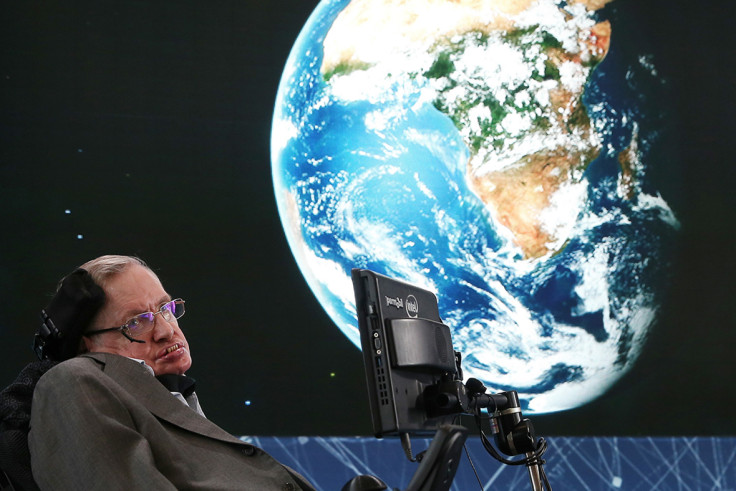Stephen Hawking believes humans will have to leave Earth in next 1,000 years – or go extinct
Physicist says mankind would need to move to a new planet in coming millennium if we are to survive.

Humans will need to leave Earth and move to a new planet if we are to survive as a species beyond 1,000 years, Stephen Hawking has said. The physicist has raised concerns about the future of humanity on Earth in the past, but reiterated the sentiment at the Oxford Union, Oxford University's debating society.
During the evening event, he spoke of mankind's achievements in understanding our world and the wider universe. However, he said our "fragile planet" will not support us forever.
"Our picture of the universe has changed a great deal in the last 50 years, and I am happy if I have made a small contribution," he said.
"The fact that we humans, who are ourselves mere fundamental particles of nature, have been able to come this close to understanding the laws that govern us and the universe is certainly a triumph."
Over the coming years, Hawking said scientists would be able to map the universe in incredible detail thanks to the development of supercomputers. "Perhaps one day we will be able to use gravitational waves to look right back into the heart of the Big Bang," he added.
But these advances and the dominance of our species would come at a cost. "Most recent advances in cosmology have been achieved from space where there are uninterrupted views of our universe, but we must also continue to go into space for the future of humanity. I don't think we will survive another 1,000 years without escaping our fragile planet."
Read more:
Stephen Hawking is really worried about artificial intelligence
How could we build an invisibility cloak to hide Earth from an alien civilisation?
Stephen Hawking on Syria: What must we look like to beings watching from space?
Hawking has in the past said leaving Earth will be essential for the survival of our species. In September 2014, he told Spanish newspaper El Mundo space travel is "life insurance" for our species as it might "prevent the disappearance of humanity by colonising other planets".
Similarly, at an event at London's Science Museum last year, he said aggression was the downfall of man that "threatens to destroy us all".
"Sending humans to the Moon changed the future of the human race in ways that we don't yet understand," he said. "It hasn't solved any of our immediate problems on planet Earth, but it has given us new perspectives on them and caused us to look both outward and inward. I believe that the long-term future of the human race must be space."
© Copyright IBTimes 2024. All rights reserved.






